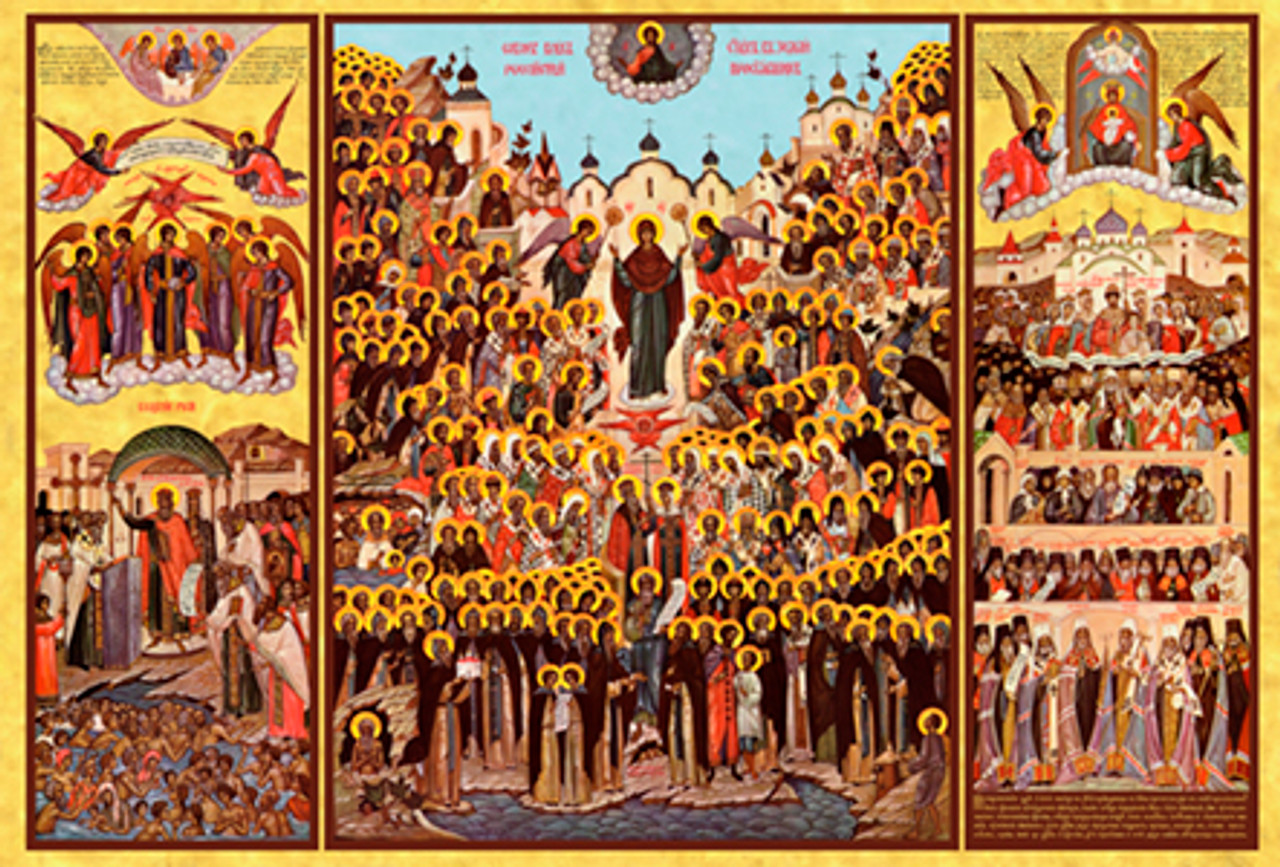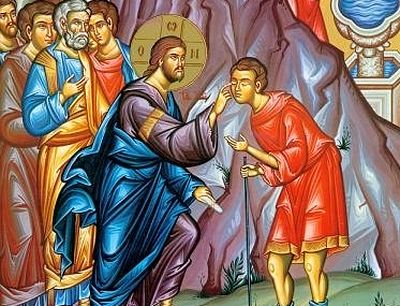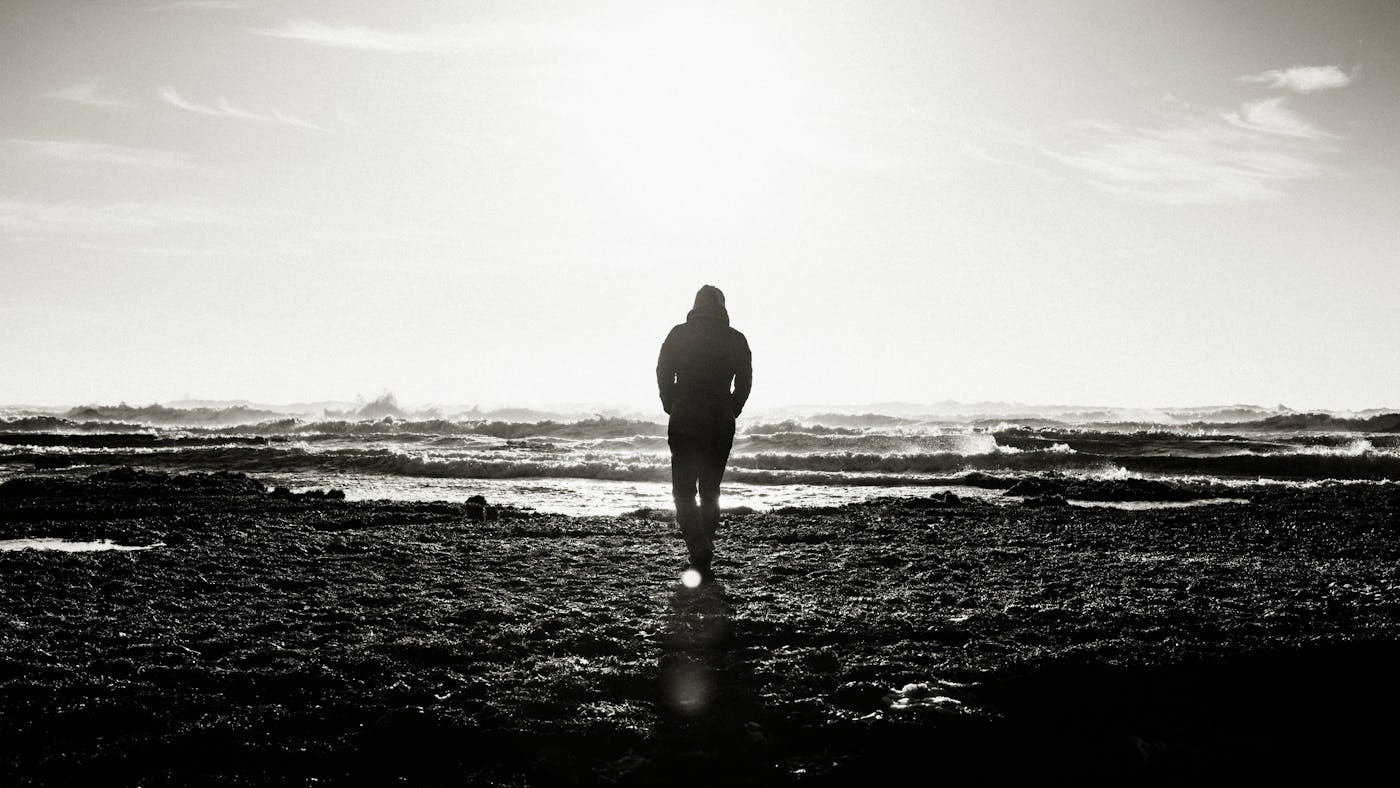Today we take the first step in preparation for the great fast of the approaching Lenten season. We enter the weeks of preparation in the Triodion period of the Church.
The Publican and the Pharisee
Glory to the Father, and to the Son, and to the Holy Spirit. One God. Amen.
Today we take the first step in preparation for the great fast of the approaching Lenten season. We enter the weeks of preparation in the Triodion period of the Church. Over the course of the next three weeks, starting with today, we begin to prepare ourselves for renewal and repentance as we return ourselves to God, so that when we celebrate that Christ has risen from the dead, we may rise with him a new creation. It is a time where we turn ourselves to God with a renewed and particular compunction of heart with that special prayer upon our lips: “My Lord Jesus Christ, the Son of God, have mercy on me, a sinner.” We give to God what God has given us: our lives. We return to Christ that which is broken and contrite: our hearts. We take back from the world that which it has taken and in turn return it to our King of Kings and Lord of Lords: our time, attention, and our veneration. “O Creator of all, above and below, as Thou receivest the thrice-holy hymn from the angels, so also from mankind receive the Triodion .”
This first Sunday establishes for us not only the cornerstone of our Lenten journey, but that as well of our Orthodox faith: Humility and repentance. I have said before, just as the desert Fathers before us have said, and the voices of the Fathers throughout the ages have exhorted us, humility is the root of all virtue, and as such is the mother of all virtue. Humility precedes love, without which there can be no salvation, for genuine love places the other before itself. Humility allows us to repent, for the prideful cannot admit they are wrong. Humility allows us to forgive others, for without which there is no forgiveness for us, for the prideful cannot release the least offense committed against them. Humility allows us to accept any poverty or lowliness of life, for pride assumes we deserve all things and holds on to all things for itself. There lies the crux of pride, an assumption of greater self worth than we actually hold; an assumption of greater importance to others and over others; and a belief of greater worth and value than the other. This is, in part, what the Gospel lesson is showing us for today embodied within the Pharisee.
Humility is a most pragmatic vision of self, and others. We truly know ourselves, and see ourselves as we really are. This is one of many reasons we commonly pray the Jesus prayer. We recognize what we are, and never assume to be of greater importance than this. Nor do we see the other in this same light and see them for their sins. No, humility is introspective, to know what one’s self is, and what we would be without the grace of God: nothing but dust, and dead. Yet, it is also the compass by which all virtue finds its way. But this is not to say that humility is a state of self degradation, self deprecation, and a demeaning of one’s self. Christ had perfect humility, and even He did not do these things. God is humble, for though he created all things, contains all things, and is the breather of stars, He cares about the least of all things: the mustard seed, the dandelions, the fig trees, the faithful, and most of all the worst of sinners, even a publican.
Humility and Pride. The Publican and the Pharisee. One stands as a trait of the faithful, for without humility there can be no faith, for as the blessed Augustine says, “faith is not a gift of the proud, but of the humble.” The other stands as a trait of the world, where pride, as the great commentator of scriptures Theopholact has said, “beyond all other passions disturbs the mind of man.” Pride distorts our view of self and of the world, whereas humility helps remove the detritus of this world that clouds our vision. We see ourselves clearly. We see the other clearly. We can then see God clearly, and in all things.
First we look at the Pharisee, the living image of pride. The Pharisees as a whole were one of the several religious sects of Jews in the days of Christ. They became the religious teachers of the people. They became the teachers of the law in the synagogues. To borrow the words of Paul, who himself was a Pharisee, they were the Jews of Jews. They were strict adherents to the law, so much so that they generally developed an outlook of life and others that was very rigid, and often unforgiving. If the law brings death, as the Apostle Paul has said, then the hearts of many Pharisees died with it. This is certainly true of the Pharisee in our parable today
He prays with himself, that is, not with God, as Saint Basil has observed. He places himself apart and above all others at the condemnation of those he sees beneath them. He extols his own righteousness before God and over other men. Yet, he may see and read the law correctly; he may do all the right things prescribed of him; he may speak the right words and say all the prayers that he should; but while his righteousness may bring him to God, if he shall be clothed with pride, he shall be cast into hell.
The Publicans were not righteous men like the Pharisees, and were often seen as traitors by their fellow Jews. They were contracted servants to the Roman empire, who were commonly and collectively seen as oppressors, and those Jews who worked for them were seen as traitors to their people. Even more, many Publicans lived lavish lifestyles acquired from their dishonest collection of money, taking more than what was owed to Caesar, stuffing their own pockets. So, the Publican in our parable had nothing of himself to extol or uplift before God, but he offered himself in humility, which is more than the Pharisee gave through all his righteous acts, prayers, and almsgiving. We are reminded of the words of psalm 50: “The sacrifices of God are a broken spirit, A broken and a contrite heart, God will not despise.”
The Publican and the Pharisee. Humility and Pride. Two paths, one of faith, and the other of the world. The story provides for us cautions in the manner in which we pray and live our lives, but also gives us a glimpse of God’s grace and mercy, that even the worst of us can be redeemed before God in nothing more than our humility. Humility, over time, can often soften the hardest of hearts, like water over stone.
Humility is the living stream that will change the face of the world, and the hearts of men, and Christ is the font of living water from which we must all flow. If all creation is a living psalter of God, then what lessons of humility can one find in water? Water rests in the lowliest of places, and so we should accept the lowliness of our estate, whatever it may be. Water is unassuming and takes the shape of the vessel in which it rests, in our case we conform ourselves to the Church. Water provides life and refreshment to everyone around it, so should we also amidst the spiritual deserts of this world. Water in its stillness reflects a perfect image, in our case the image of God, for when we are still, we shall know that He is God. In its purity, one can see through to the deepest parts of its being, and therefore the truth therein. Water is patient. It does not fight, but takes the path of least resistance. Yet, it is persistent, and in time can change the face of the world.
So, be like Christ, a living water unto the world, and by our humble persistence, patience, and peace of heart, may all those around us be saved.
Oh Lord Jesus Christ, Son of God, for the sake of the prayers of Thy most pure Mother, our holy and God-fathers and all the saints, the martyrs, and the angels, have mercy on us and save us.












